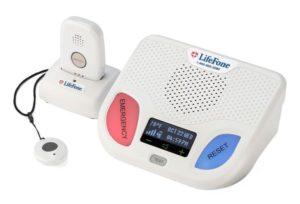Three Tips For Remembering To Take Medication
You know the phrase ‘don’t forget to take your medication’. It’s true; remembering to take your medication can be a struggle and even more difficult if you’re trying to help your loved one remember! At LifeFone, we offer medication reminders and tips.
It’s important to note, when it comes to your loved one; 44% of men and 57% of women over the age of 65 take five or more medications per week with 12% of both men and women take 10 or more medications per week. That is a lot of pills for one person to manage. It can become overwhelming, and often times one feels like just giving up when it comes to medication.
Here’s three tips for staying on track:
- Use pill boxes with the days of the week divided into morning, daytime and night compartments, and leave them in the same place
- Set your own reminder and phone your Mom or Dad when it is medication time
- Use a calendar specifically for medication and have Mom or Dad fill in or mark off the times they took their medication

To help with reminders and alarms, we suggest using our caregiver tools available to subscribers of our medical alert systems. The medication reminders will tell a subscriber when and what medication(s) he or she needs to take on a daily or weekly basis. These reminders are entered and can be updated as needed by a caregiver authorized by the subscriber.
Here’s a few other important pieces of the puzzle when it comes to medication:
Make sure the dosage is age-appropriate:
As we age, our bodies metabolize various drugs differently. We become more sensitive to some drugs, and less sensitive to others. That can result in adverse effects. Double check with the pharmacist or the doctor to ensure that the dosage on the prescription is age appropriate or needs to be adjusted.
Be aware of medications deemed unsafe:
For instance, commonly prescribed sedatives in the benzodiazepine category, like diazepam (Valium) are on the ‘avoid for certain conditions’ list because older adults may be more sensitive to these drugs. Always ask to find out if any medications are on the caution list.
Understand the side effects of each medication:
Knowing the potential side effects and interactions can help you stay alert to any health changes that may occur in response to a new medication or combination of medications. If you do notice health changes, contact a physician right away. Some side effects can mimic other health conditions, including dementia, so make sure to bring a list of your medications to every doctor visit. This will help the provider properly diagnose the problem — and help the patient avoid unnecessary or dangerous medications.
When you break down taking medication into manageable steps, it becomes easier. Being aware of the changes that aging brings to your prescriptions, or those of your loved ones, is one way to make it less stressful.
FREE BROCHURE Today!
